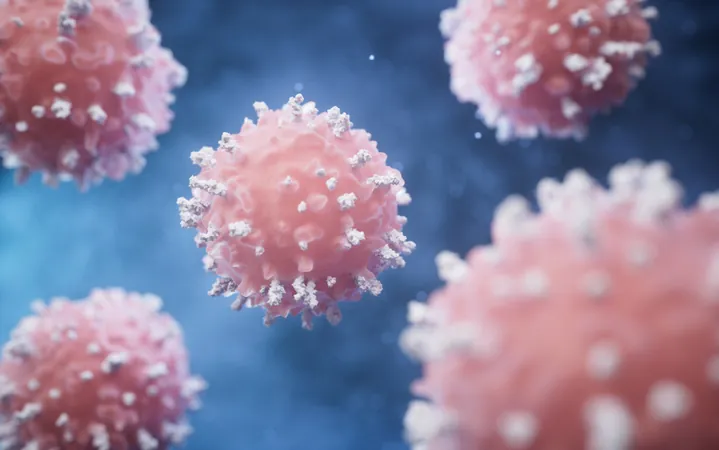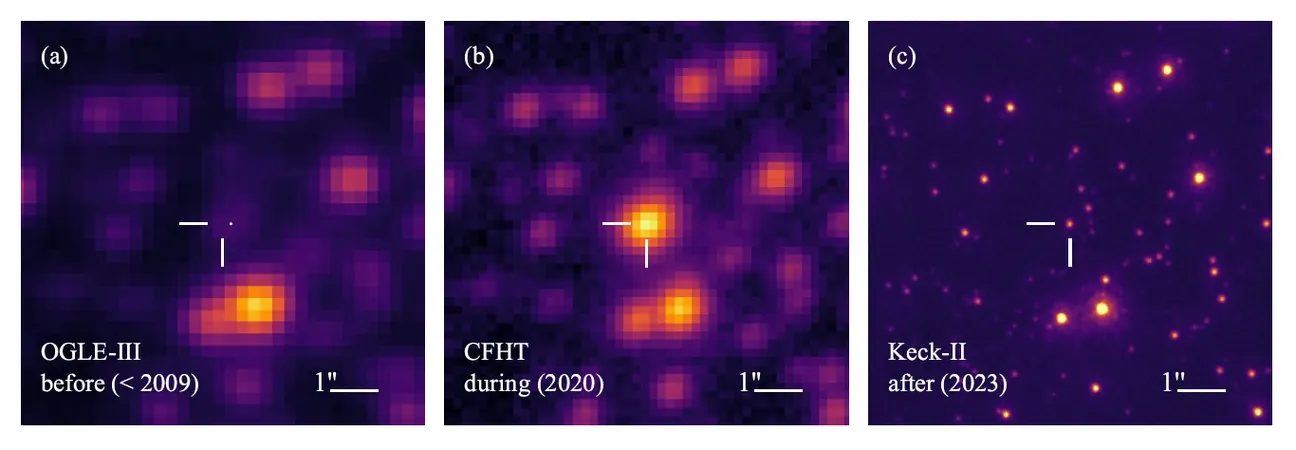
Shocking Discovery: Neoself Antigens and Their Role in Autoimmune Responses in Lupus Patients!
2024-09-16
Revolutionizing lupus research
In a groundbreaking study that could change the landscape of lupus research and treatment, scientists from Osaka University have pinpointed a startling culprit behind the autoimmune disease systemic lupus erythematosus (SLE): neoself antigens. This revelation sheds light on a longstanding mystery surrounding the major histocompatibility complex class II (MHC-II) and its role in triggering autoimmunity.
The role of MHC-II
For years, the medical community has recognized MHC-II as the largest genetic risk factor for SLE, but the exact self-antigens that provoke such a response have remained elusive. Patients suffering from lupus often face a myriad of challenges, leading to difficulties in treatment due to their complex immune behavior.
Discovery of neoself antigens
The Osaka University researchers discovered that neoself antigens—which are the body's own misfolded proteins—serve as the primary targets for autoreactive T cells that have been clonally expanded in SLE patients. They revealed that these neoself antigens are presented on MHC-II without the necessary invariant chain, crucial for proper peptide presentation. This absence leads to an erroneous immune response, causing T cells to recognize the body’s own proteins as foreign invaders!
Published findings
In their study published in the prestigious journal *Cell*, the researchers observed that nearly 10% of the expanded T cell repertoire in lupus patients reacts to these neoself antigens. Dr. Hisashi Arase, from the Laboratory of Immunochemistry at Osaka University, emphasizes the peculiarity of this immune response, stating that T cells traditionally "train" to ignore self antigens. However, without the invariant chain, larger, misfolded proteins slip through the immune system's safeguards, prompting an attack on the body’s own tissues.
Connection with Epstein–Barr virus
But here's where it gets even more intriguing: the research team uncovered the potential link between the Epstein–Barr virus (EBV) and the exacerbation of lupus symptoms. It appears that when EBV, a virus most people carry dormant within them, reactivates, it interferes with the invariant chain expression. This suppression boosts the visibility of neoself antigens to T cells, ramping up the attack on the body's own cells—a significant concern for those suffering from lupus.
Implications for treatment
This remarkable discovery not only enhances our understanding of the autoimmune mechanisms at play but also opens the door to potential new therapies targeting neoself antigens. As researchers continue to delve deeper into the relationship between EBV and autoimmune responses, we could soon witness a new era in effective treatments for lupus and other autoimmune diseases.
Future research directions
The implications are vast, prompting calls for further research into how controlling the presentation of neoself antigens might usher in better management or even curative approaches for lupus patients. Stay tuned as this sensational story unfolds with potential breakthrough treatments on the horizon!


 Brasil (PT)
Brasil (PT)
 Canada (EN)
Canada (EN)
 Chile (ES)
Chile (ES)
 España (ES)
España (ES)
 France (FR)
France (FR)
 Hong Kong (EN)
Hong Kong (EN)
 Italia (IT)
Italia (IT)
 日本 (JA)
日本 (JA)
 Magyarország (HU)
Magyarország (HU)
 Norge (NO)
Norge (NO)
 Polska (PL)
Polska (PL)
 Schweiz (DE)
Schweiz (DE)
 Singapore (EN)
Singapore (EN)
 Sverige (SV)
Sverige (SV)
 Suomi (FI)
Suomi (FI)
 Türkiye (TR)
Türkiye (TR)